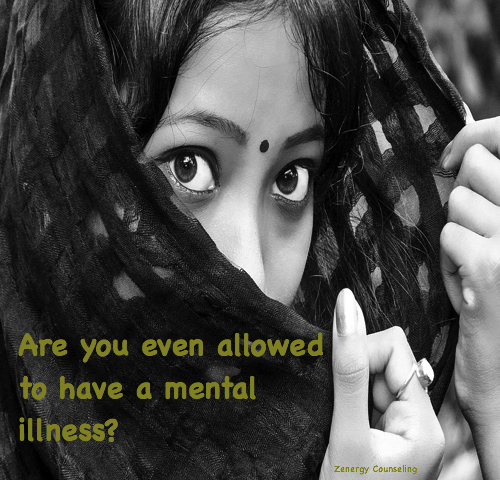You have a great life. You love your career. Your relationship with your parents has improved tremendously. You are in a good place romantically. But you still struggle with anxiety. You repeat the mantra you grew up with: “there are so many others who have it much worse than you; be thankful for what you have.” Are you even allowed to have a mental illness? Though your parents have come a long way, they can’t seem to understand why you are “not okay.” To them, sure, you may have the option of going to therapy but what would other people say?
Humans are social creatures; though we want to believe that we don’t care about what others think or say about us, we DO care. It is both a part of what builds and what diminishes our self-esteem. The changes occurring in mental health treatment and the public openness to seeking therapy is a very new movement. Mainstream America still struggles with these changes so how can we expect more orthodox or conservative communities, such as the South Asian community, not to find these changes difficult?
I cannot imagine anyone wishing for more difficulties in their life. Given the choice between smooth sailing or facing numerous obstacles, I know I would gravitate towards the clear skies and tranquil seas. Therapy is a proven method to help tackle some of life’s difficulties.
In this post, I would like to point out some thoughts and behaviors that could sabotage your results when you make it to therapy, especially in the context of the South Asian community.
- Emotions = weakness
It takes a lot more courage and strength to show vulnerability than it does to remain emotionally closed off. Expecting someone to “know” what you are thinking and feeling creates unnecessary friction in your relationships. Sharing your feelings may help others meet you where you are and create an opportunity to strengthen your bond.
- Time will heal
Does it? Does it really? Time will force you to learn to live with the outcome but that does not necessarily mean you have healed from the wound.
- Being Grateful for what you have
I can’t agree with the sentiment that “there are so many others who have it much worse than you; be thankful for what you have.” Pain and hurt is not a competition. There is no way of appropriately measuring the specific amount of pain an event causes. We judge the event and we judge a person for their behavior but it is unfair to assume that your situation is less than someone else’s perceived experience.
- People pleasing
South Asian children are raised to be obedient and well behaved at all times. Kids may go through a rebellious phase but are overall quick to follow direction. This can develop into an ingrained habit where you feel the need to lie about your results or always agree with your therapist because you don’t want to disappoint them or hurt their feelings.
I can speak for most therapist out there: it does not. The best thing you can do for yourself (and your therapist) is to tell the truth as it is. It’s okay if something doesn’t work, that only helps your therapist further your treatment.
- Mental health is a race-related issue.
Bluntly speaking, this means that mental health problems are a “white people” problem. That is definitely not true. Anyone at any time can experience a mental health issue; it is not only limited to a specific group. South Asians are less likely to acknowledge Generational Trauma which impacts more individuals than the community is willing to admit.
- God’s wrath
Some South Asians believe they are suffering because of karma or as a punishment by God. Do I believe in karma? ABSOLUTELY. Being a social worker and witnessing all types of injustice, believing in karma helps keep me sane. But to assume that you are struggling because of karma does not make sense. For some, mental illness stems from a lifelong chemical imbalance that leaves them feeling uncomfortable in their own body. Religion teaches us that God is merciful; punishing you “forever” does not match that belief. Even if it is not a lifelong matter, you are under no obligation to continue your suffering.
- Waste of money
If I got a penny every time I heard (in various words) how unnecessary my field is because all I do is talk to people, I would have paid off all my student loans long ago. South Asians excel at telling their loved ones what to do, even when no one asks for their advice. To many of them, it is absurd that you would actually pay someone to give you the same advice that they can give for free.
Therapy is not giving advice. I don’t talk to people because I enjoy hearing myself talk. I create a safe space for a person to explore their emotions and process experiences. There is an art to this process and it requires specialized skills that take years of training to develop. I do not take it personally if someone does not follow the treatment suggested. They have to want to invest in themselves and their growth.
Considering the South Asian culture places so much emphasis on the body-mind connection and mindfulness activities, it is interesting to see the discomfort the culture has with connecting to one’s emotions. But the trend is changing. Younger generations are more open to investing in themselves for a happy and healthy life.
If you face obstacles to being mentally healthy let’s discuss a treatment plan that can help you reach your health goals.

